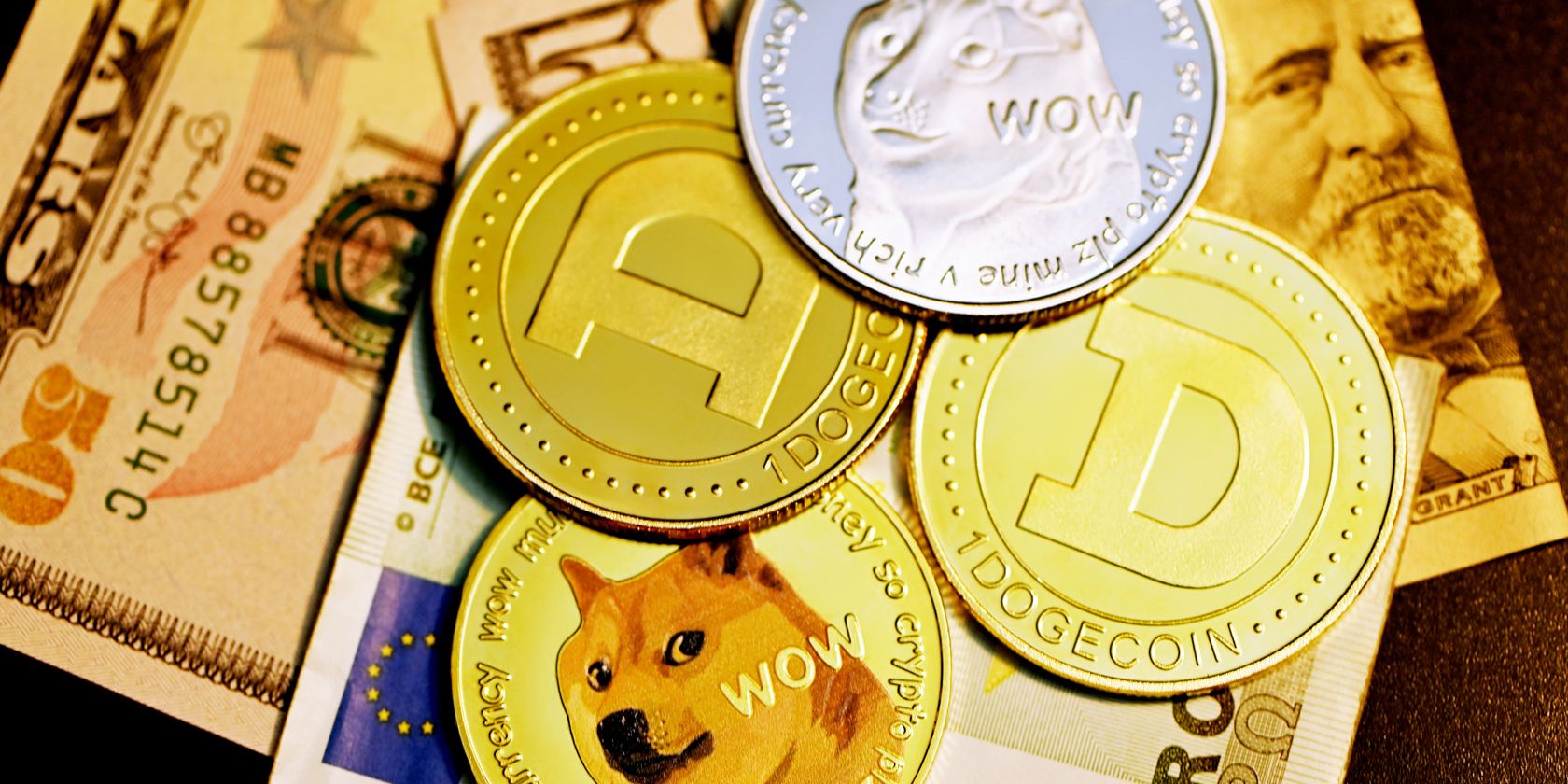Dogecoin, the cryptocurrency that emerged at the peak of the internet meme’s popularity around 2013, has become one of the most valuable digital currencies by market capitalization. Within the first five months in 2021, its price jumped by 13,000%—with many fervent supporters expecting it to land even higher in due course.
Dogecoin’s upwards trajectory can be explained by the fact that the digital currency has amassed a significant fan following on Twitter and other social media platforms. Elon Musk, of Tesla and SpaceX fame, has also endorsed it on several occasions—albeit with later clarifications that his statements are made in jest.
What Does It Mean to ‘Own’ Dogecoin?
Dogecoin is a cryptocurrency, in the same vein as Bitcoin and Ethereum. A unit of Dogecoin, called DOGE, can be thought of as a digital token with some monetary value. This value can fluctuate, depending on the dynamics of supply and demand, which means that the asset can be traded for a profit or loss—similar to any other commodity such as oil and gold.
As of the time of writing this article, there are approximately 129 billion Dogecoin in circulation. Acquiring a few tokens is as simple as paying an existing owner to transfer their holdings over to you. This is the most basic form of cryptocurrency trading and is often referred to as ‘peer-to-peer’ trading.
Luckily though, cryptocurrency exchanges simplify the process of finding a counterparty for your buying and selling needs. If you have ever invested in stocks, the chances are that your existing broker or trading platform may also support Dogecoin trading.
Once you acquire Dogecoin from another individual or exchange, you can hold it in a software wallet of your choice or trade it for goods and services. Dozens of merchants across the globe accept payments in various digital currencies these days, including Dogecoin. Alternatively, you can choose to hold it for some amount of time and attempt to turn a profit, just like any other investment.
Buying Your First Dogecoin: Traditional Stockbrokers
A handful of stockbrokers have now entered the cryptocurrency trading industry—offering an easy way for existing users of the platform to acquire cryptocurrency. Robinhood and Webull are two notable app-based trading services that support Dogecoin trading.
Convenience is the primary reason why you might want to use one of these platforms to buy and sell cryptocurrency. However, there are a couple of reasons why you should also stay cautious if investing a significant amount of money.
Robinhood, for one, has succumbed to a fair number of outages in the first half of 2021—and has been known to disable trading during periods of high volatility. If you’re planning to swing trade with Dogecoin, you may want to consider a more reliable alternative.
Advanced Users: Cryptocurrency Exchanges
Exchanges dedicated to cryptocurrency trading such as Coinbase, Kraken, Binance, and Gemini offer a few advantages over the aforementioned options.
For one, you can trade other cryptocurrencies for Dogecoin directly. The DOGE/BTC trading pair on Binance, for example, can be used to liquidate your Bitcoin holdings for Dogecoin and vice versa. This is in addition to traditional pairings with the USD and other fiat currencies. Another service that allows you to swap between various cryptocurrencies is Changelly.
The second benefit to using a cryptocurrency-specific exchange is that traditional equity-oriented brokers like Robinhood tend to prevent you from withdrawing your Dogecoin to a personal wallet. As we will explain later, this requires you to ‘trust’ the company with safeguarding your wealth. Since you cannot withdraw your Dogecoin, any tokens you purchase through these services are little more than digital IOUs.
The one downside to cryptocurrency exchanges is that you will have to complete a one-time identification process before you can begin buying and selling cryptocurrencies on the platform. Depending on the exchange in question, getting yourself verified may take anywhere between a few days and a week. If you already have a Robinhood account, there is no wait time whatsoever—adding to the convenience factor.
How to Safely Store Your Dogecoin Forever
Once you have acquired some Dogecoin, the best course of action is to transfer it to a personal wallet of your choice. This is because storing your cryptocurrency on an exchange is a risky proposition. In the event that the exchange is hacked, and the company becomes insolvent, there will be no recourse for you to recover your funds. This is not a theoretical event either. Billions of dollars worth of crypto have been stolen from exchanges in recent years.
Furthermore, the vast majority of cryptocurrency exchanges are not insured against events such as hacks and security breaches. As Robinhood puts it,
“Cryptocurrencies are not stocks and your cryptocurrency investments are not products protected by either FDIC or SIPC.”
Unlike a company’s shares or the money in your savings account, cryptocurrencies are largely unregulated and cannot be restored by a government agency or central bank.
To that end, the consensus is that you should use a desktop wallet such as MultiDoge to safeguard your tokens. If you hold significant amounts of digital currency, however, it may be worth considering a hardware wallet such as the Ledger Nano S or Trezor Model T. Both these devices are specifically designed with long-term storage in mind and are well-regarded by the general crypto community.
Securing Your DOGE on Mobile
You can even store your cryptocurrency on an Android device with an app such as Trust Wallet or Dogecoin Wallet. However, with a mobile wallet, you also have to account for the possibility of losing your wallet or it ending up in the hands of a malicious individual. To remedy this, ensure that you set a secure password, enable two-factor authentication, and backup your wallet’s private key on a different device.
With these measures in place, you can rest easy knowing that nobody, except for you, can access your Dogecoin holdings.
About The Author

